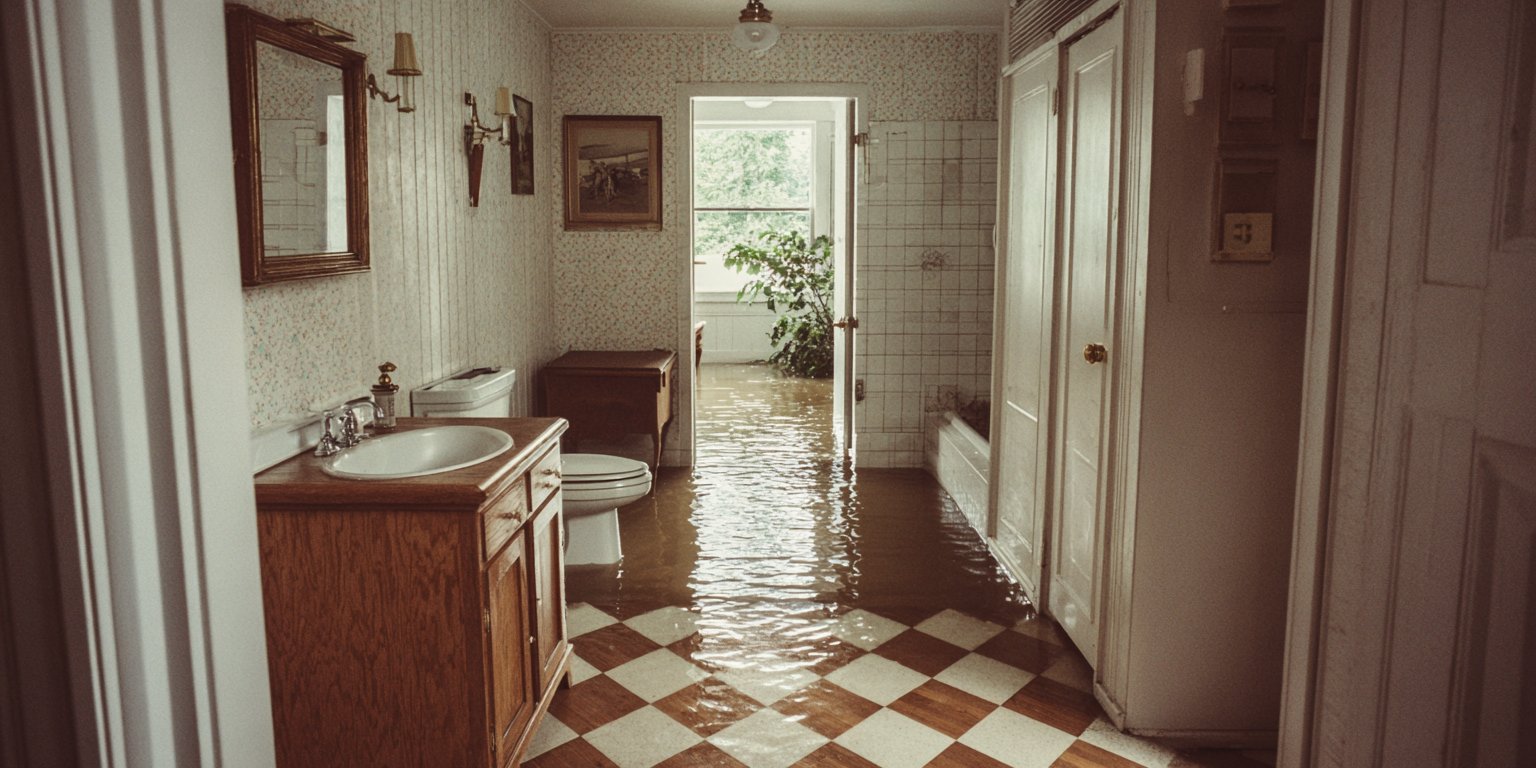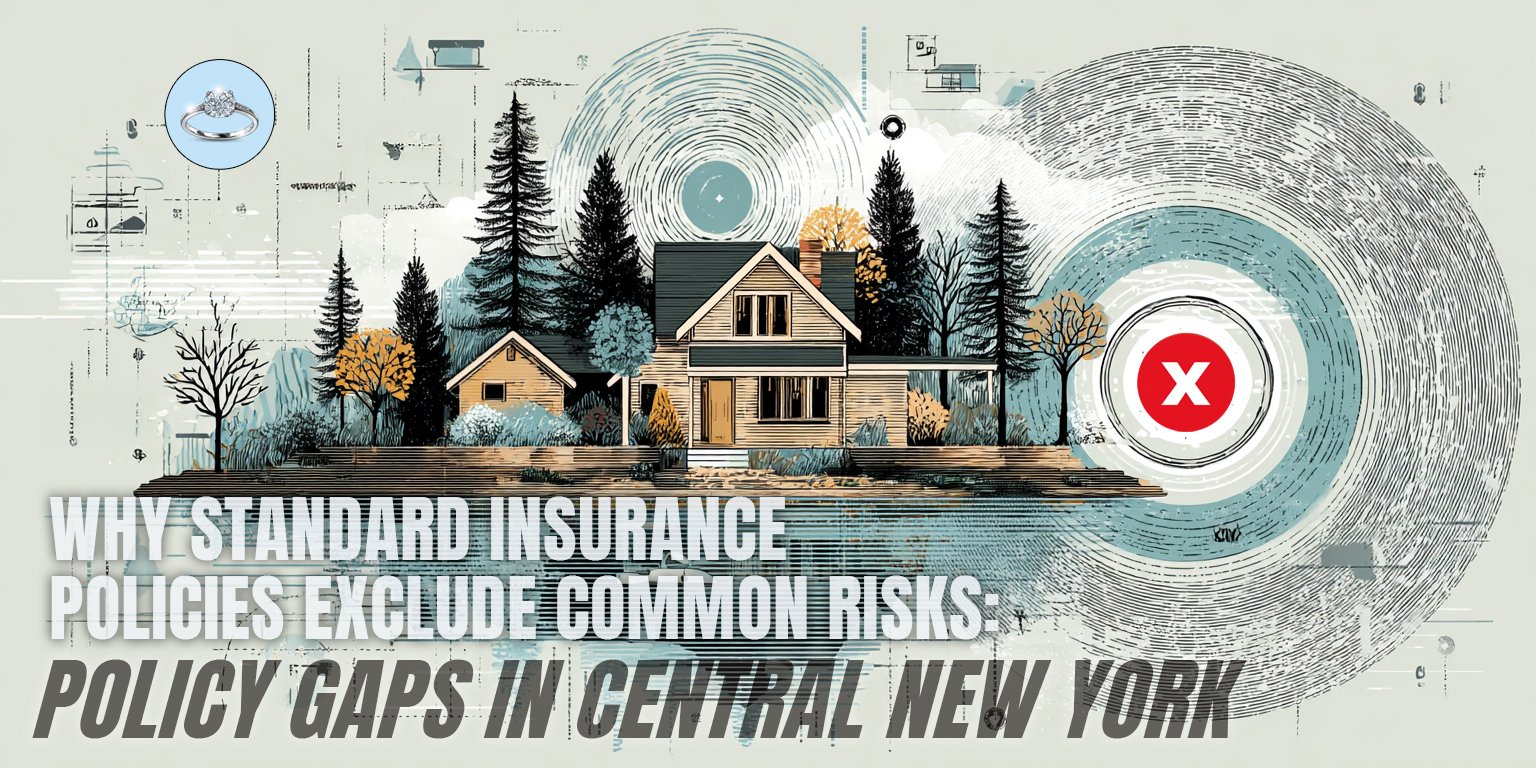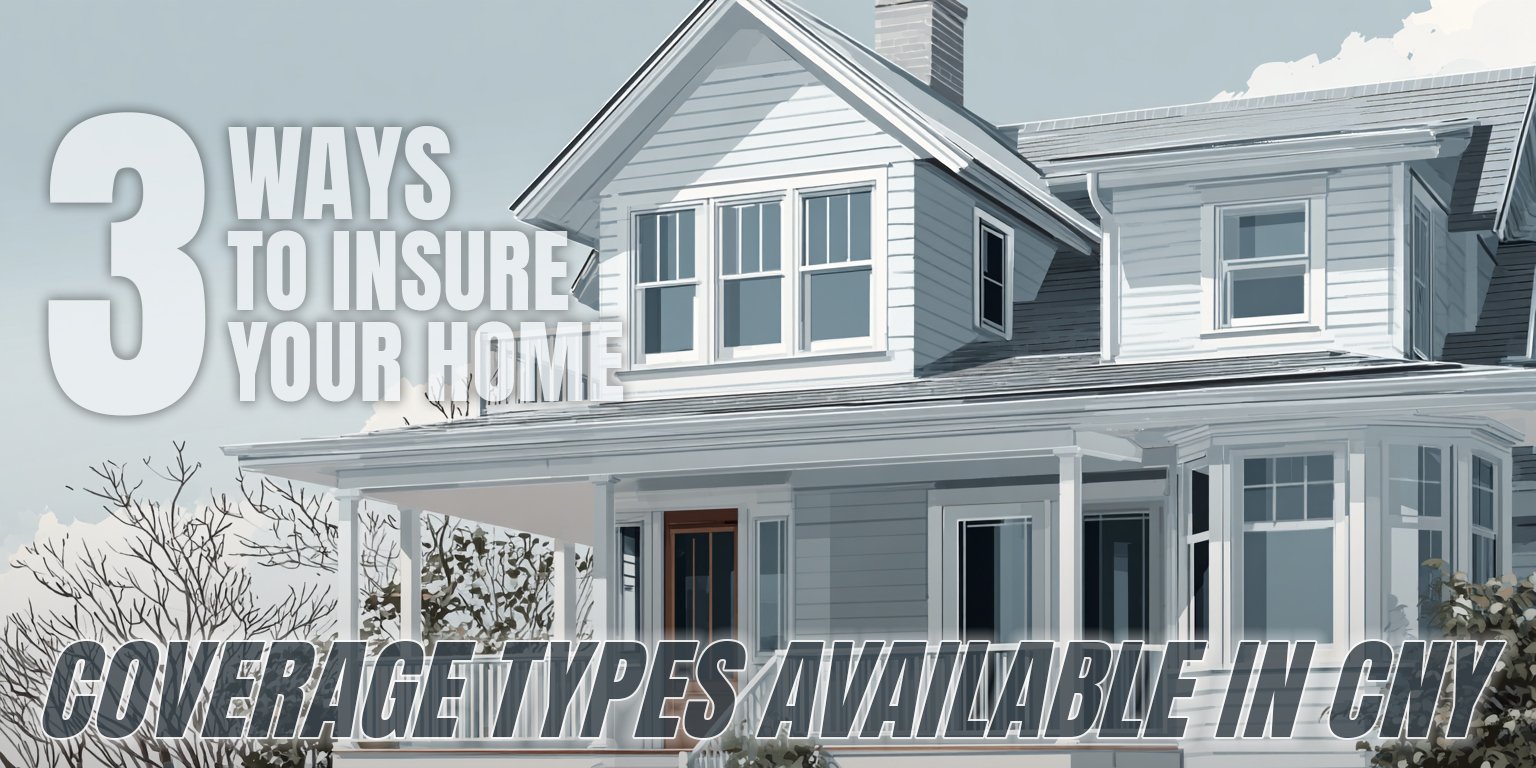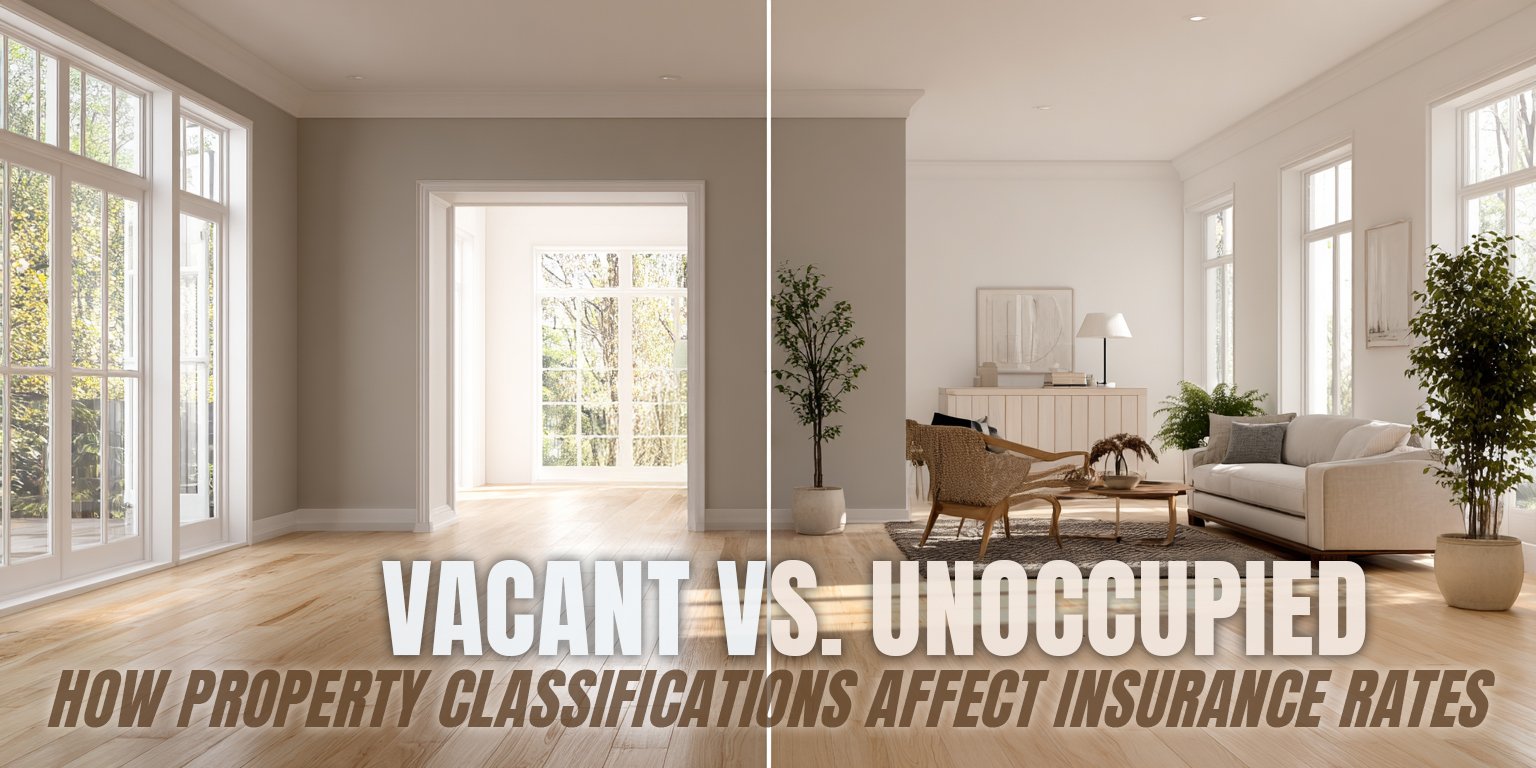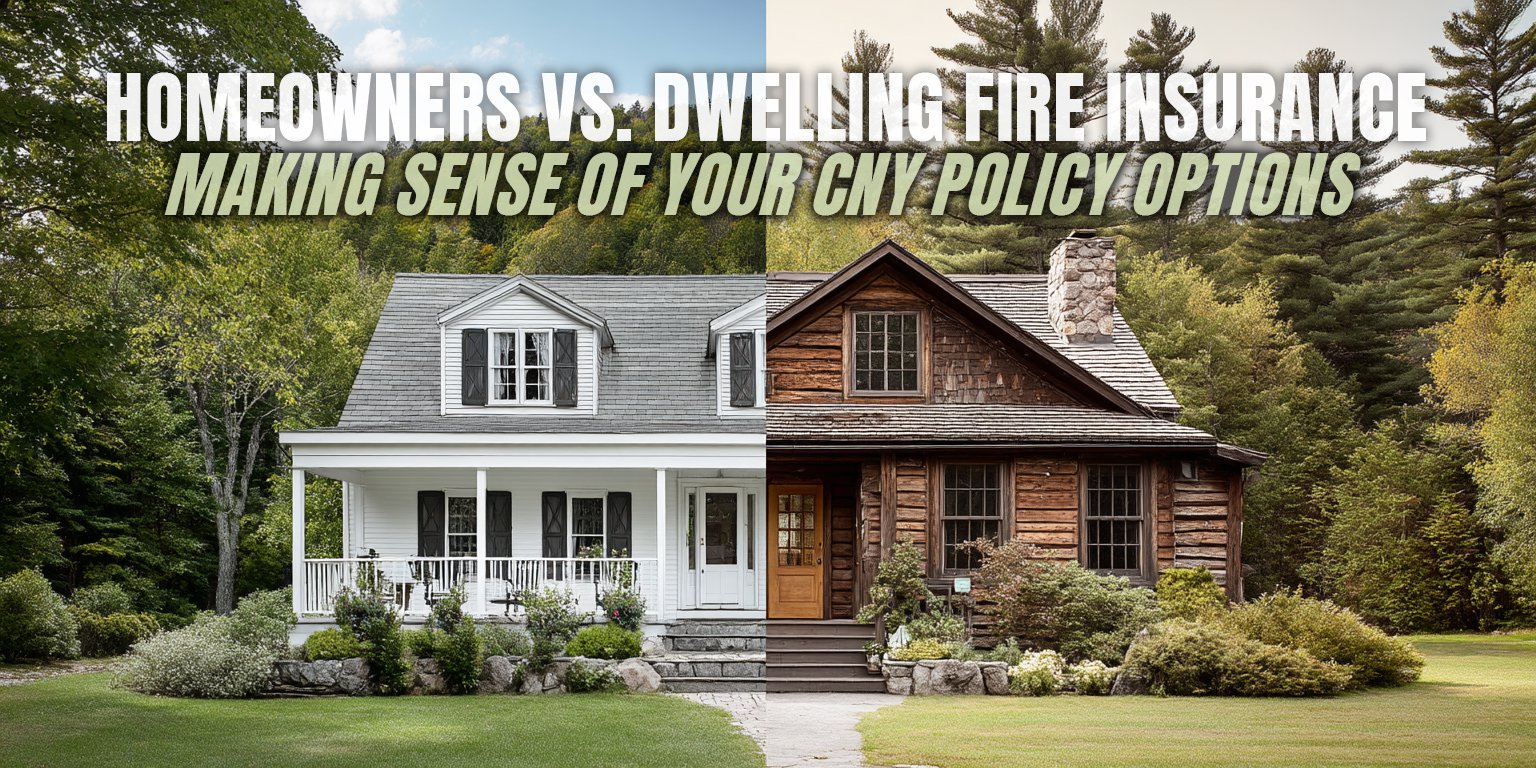Homeowners Insurance Gaps: Hidden Risks for Central New York Property Owners
October 23rd, 2024
4 min read
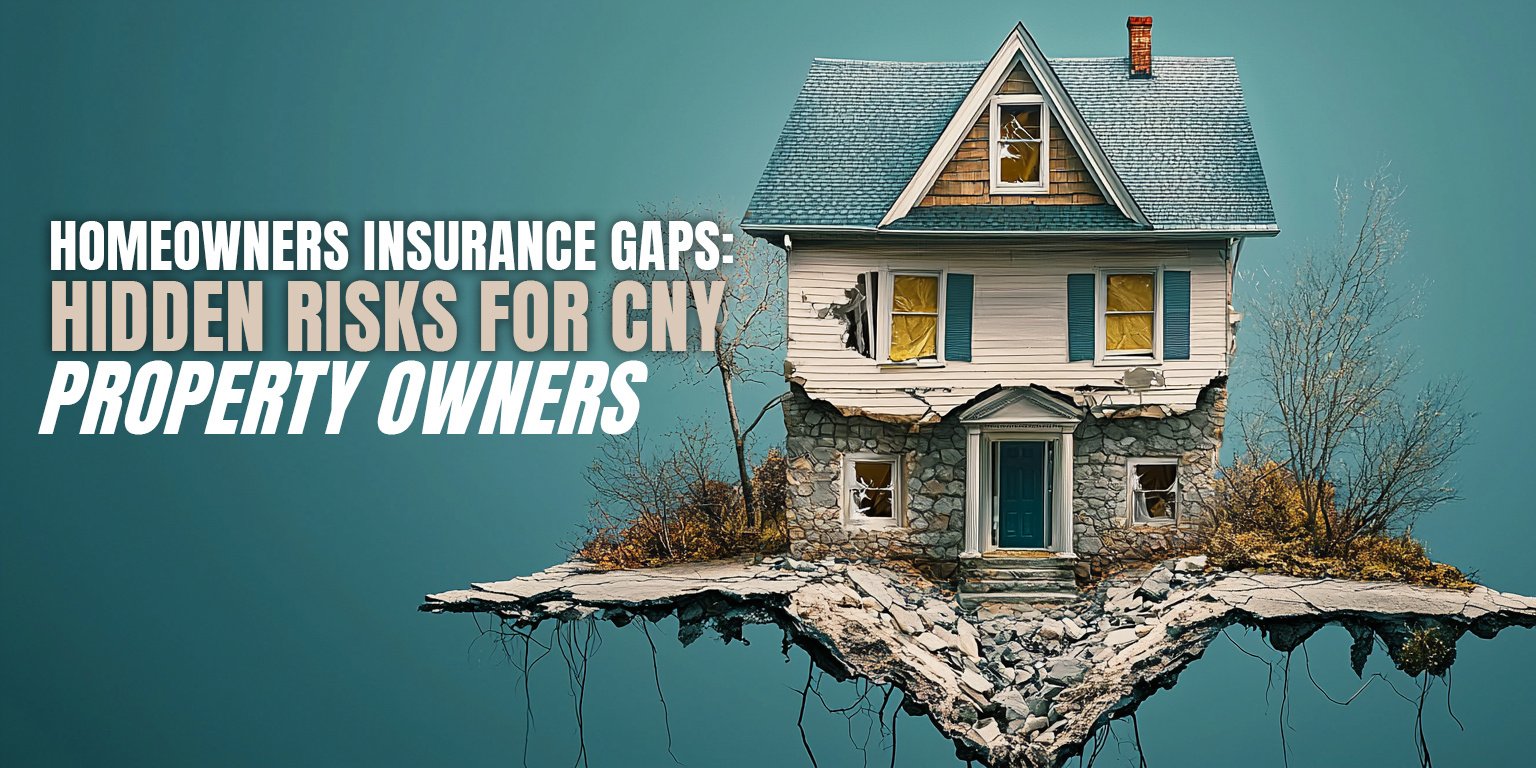
As a Central New York homeowner, you've worked hard to create a safe and comfortable space for your family. You've invested time, money, and effort into making your house a home. But have you considered that your homeowners insurance policy might not be providing the protection you think it does?
Many homeowners misunderstand their policies and don't realize they have significant coverage gaps until they face an unexpected situation, leaving them confused and potentially unprotected.
At the Horan insurance agency, we understand your concerns. You want help to protect your investment and your family's security, but the complexities of insurance policies can be overwhelming.
That's why we're here to shed light on a critical yet often overlooked aspect of your homeowners policy: the hidden risks that could potentially leave you with coverage gaps.
In this article, we'll explore why standard homeowners policies might not cover you in certain situations, how these gaps could impact your coverage, and what you need to know to help ensure you're adequately insured.
We'll aim to guide you through the potential pitfalls of insufficient coverage and offer suggestions on how to prepare for unexpected risks, potentially helping you achieve greater security and composure.
Understanding the Fine Print: The Critical Details of Your Homeowner's Policy
Before diving into specific scenarios, it's crucial to understand the fundamental requirements of a standard homeowners policy. Many Central New York homeowners overlook these details, which can lead to unexpected coverage gaps.
The Dual Requirement: Ownership and Occupancy
Standard homeowners policy language is clear but often misunderstood. To maintain adequate coverage, the insured must typically meet two critical conditions:
- Ownership: The policyholder must be the legal owner of the property.
- Occupancy: The policyholder must actively occupy the residence.
These requirements might seem straightforward, but they can create complex situations when life circumstances change.
 The Surprising Gaps in Standard Homeowner's Policies: When Your Coverage Might Fall Short
The Surprising Gaps in Standard Homeowner's Policies: When Your Coverage Might Fall Short
Let's explore two common scenarios where homeowners might unexpectedly find themselves with inadequate coverage.
1. The 60-Day Countdown: The Hidden Risk When Selling Your Home
You've decided to sell your home and move to a new place in Central New York. It's an exciting time, but it also comes with hidden insurance risks that many homeowners overlook. Here's what you need to know:
- Once you move out of your home, a 60-day countdown often begins
- After this period, your home may be considered "unoccupied" by insurance companies
- Claims for vandalism, water damage, or theft might potentially be denied after this period
In the current Central New York real estate market, homes can take months to close. If you move out before accepting an offer, you could potentially find yourself without adequate coverage when you need it most.
2. The Family Move-In Scenario: When Good Intentions Could Lead to Insurance Gaps
Imagine this: Your sister's family needs a place to stay, and you have a vacant home in Baldwinsville. It seems like a perfect solution, right? Unfortunately, this well-intentioned move could potentially leave you vulnerable to significant insurance gaps:
- Once you vacate the residence, it’s no longer considered your "residence premises" in the eyes of your insurance company
- Even if your relatives don't pay rent, you might be viewed as a landlord from an insurance perspective
- Your standard homeowners policy may not cover you in this situation, potentially leaving your property at risk
The Hidden Dangers: What Your Policy Might Not Cover
When a home is left unoccupied or the living situation changes, homeowners may be exposed to risks that a standard policy may not cover. These can include:
- Water damage from burst pipes or leaks
- Theft of valuable items
- Vandalism to the property
For example, if a homeowner has moved out of their Camillus home while it's on the market, and someone breaks in and steals appliances after the 60-day occupancy period, they might find themselves without coverage for the loss.
Safeguarding Your Investment: Steps to Help Ensure Adequate Coverage
To help avoid being caught off guard by these scenarios, consider the following steps to help safeguard your property and maintain appropriate coverage:
- Communicate with Your Insurance Agent: Before making any changes to your living situation, reach out to your agent. They can review your current coverage and advise you on potential steps to take based on your specific situation.
- Consider a Dwelling Fire Policy: This type of policy can address two common scenarios: a) For Vacant Homes: If you're selling your home and moving out, a Dwelling Fire policy can provide coverage for vacant properties. This helps protect your property during extended periods when no one is living there. b) For Non-Owner Occupied Homes: If family or friends are moving into your property, you may need to switch to a Landlord policy, which is a type of Dwelling Fire policy. This coverage is designed for non-owner-occupied properties, potentially providing safeguards for the structure and addressing liability issues that may arise.
In both cases, a standard homeowners policy may not provide adequate coverage, so it's important to discuss these situations with your insurance agent.
- Schedule Regular Policy Reviews: Set up annual check-ins with your insurance agent to help ensure your coverage aligns with your current situation. As your life changes, your insurance protection may need to evolve as well.
- Understand Your Policy's Fine Print: Take the time to read and understand the details of your home policy, particularly regarding occupancy requirements and coverage limitations. If anything is unclear, don't hesitate to ask your agent for clarification.
Take Steps to Safeguard Your Home and Become a More Informed Homeowner
Understanding the intricacies of a homeowners insurance policy isn't just about insuring an investment—it's about gaining valuable knowledge that can help you make informed decisions. By familiarizing yourself with these insurance nuances, you may be better equipped to address your property's protection needs.
At Horan, we're committed to being a resource in navigating these complex insurance landscapes. Our team of agents understands the unique challenges faced by homeowners in Central New York, from the changing real estate market to the specific risks associated with our region's weather patterns.
Consider taking these actions to help secure your home and financial future:
- Review your current policy for any potential gaps in coverage
- Consider how recent or upcoming life changes might affect your insurance needs
- Prepare a list of questions about your specific situation
When you work with Horan, you're utilizing a team dedicated to helping you navigate the complex world of insurance. We offer:
- Guidance based on your personal situation
- Proactive solutions to help prevent coverage gaps
- Ongoing support and regular policy reviews to help ensure your protection evolves with your needs
Click the Get a Quote button below to start a conversation. We can work together to develop an insurance strategy aimed at providing the coverage and confidence you seek for your unique circumstances.
Daniel is an accomplished content creator. He has been working in publishing for almost two decades. Horan Companies hired Daniel as its content manager in November 2022. The agency entrusted its messaging to him. Since then, Daniel has written insurance articles, service pages, PDF guides, and more. All in an effort to educate CNY readers. He's helping them understand the world of insurance so they can make informed decisions.
Topics:











